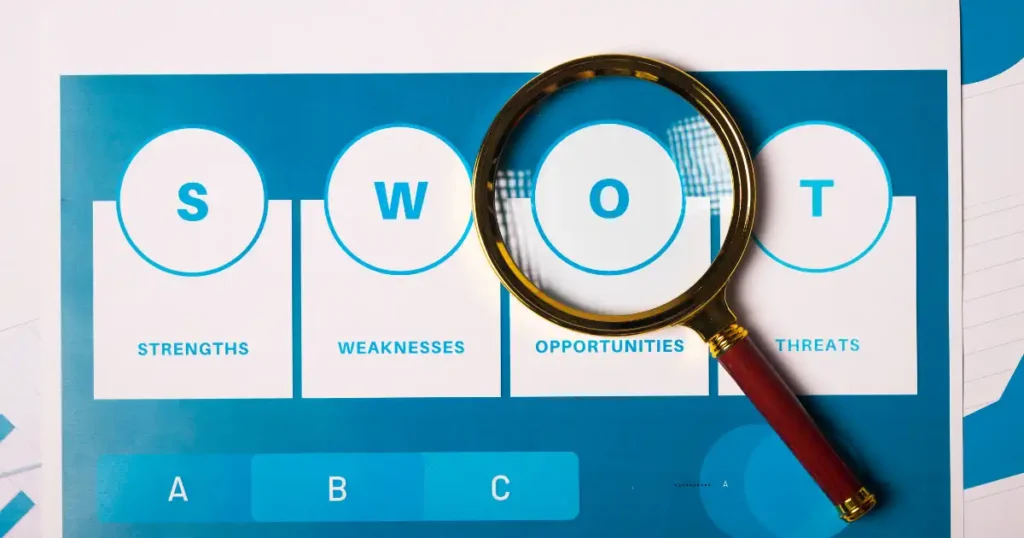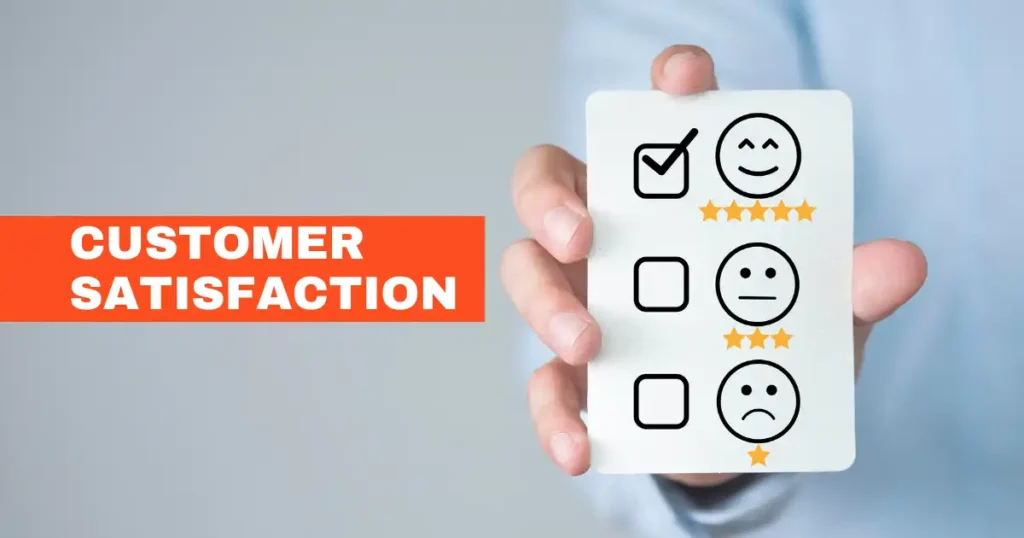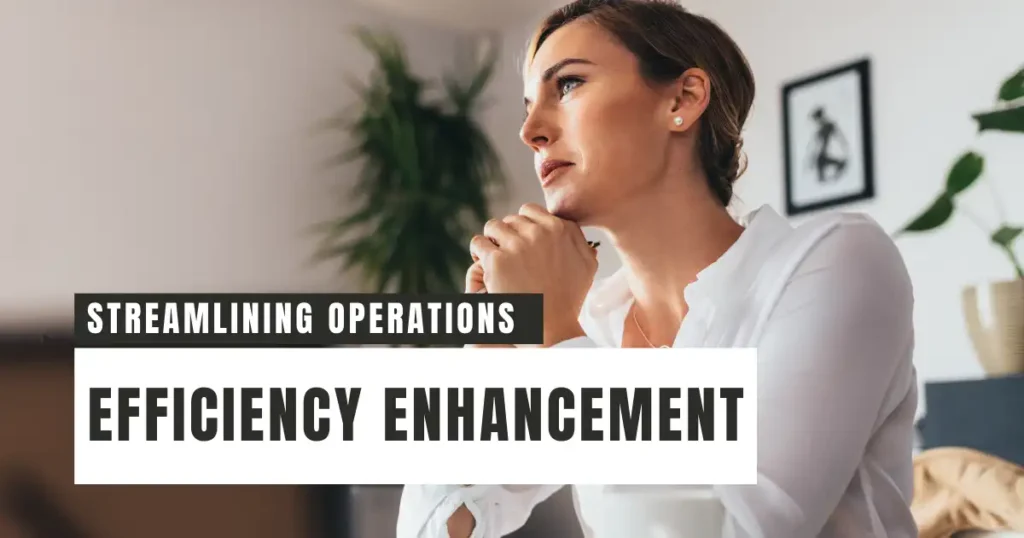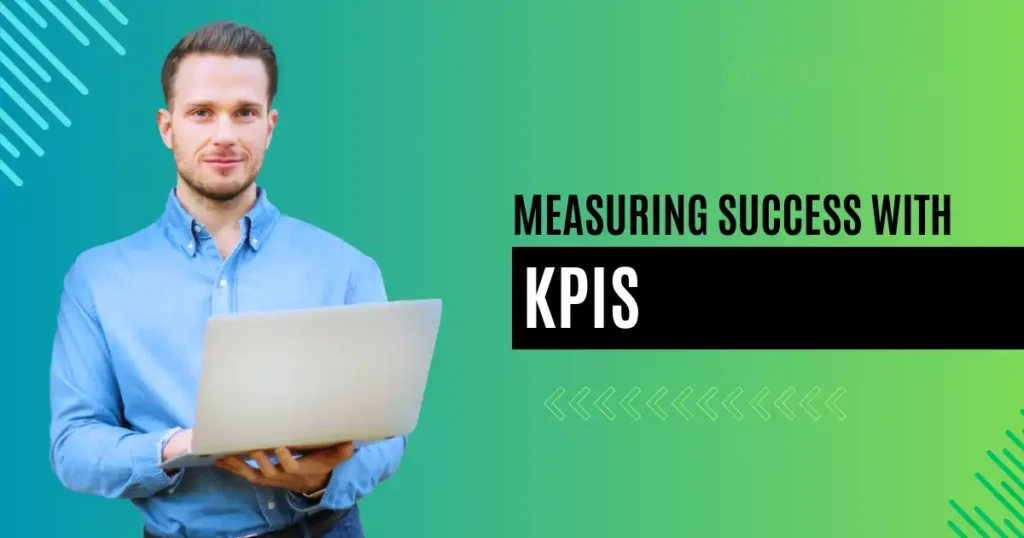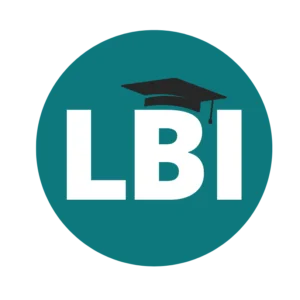Table of Contents
*CI means Continuous Improvement
Delivering effective continuous improvement for your organization or, if you are a consultancy, your clients, is a skill highly in demand but, sometimes, lacking. Many people state they can deliver effective continuous improvement because “they took part in a change project” before, have delivered some continuous improvement tools as part of their day job or have even gained some sort of qualification in this area.
Knowing these experiences are present in someone’s past is really important, but at this early stage, these may just be words. How can you truly know that someone has the skills, experiences and passion to deliver continuous improvement? How do you know what the delivery of these skills and qualifications actually looked like? How can you see the genuine feeling of desire to work in this field for the long term and deliver continuously? Short answer, right now, is you don’t.
That is where the interview stage comes in. If you are interviewing someone for a role in continuous improvement, or for a role that is going to involve a lot of change and improvement aspects, there are certain questions you need to ask to understand the candidates true experience, true passion and true motivations. Let’s explore those questions now:
Questions to ask in a Continuous Improvement interview
Q1: Tell me what qualifies you to take on this continuous improvement role.
This is a great opener question, for several reasons. Firstly, it sets the tone for the interview. The interviewee now knows that this interview is going to be focused on the improvement element of the role and that you want an experienced person, not a novice. Secondly, the question is framed in a way which puts the onus on the interviewee to sell themselves. It gives them the space to highlight the experiences they feel are important and what they are stressing and prioritizing. This is great insight for the interviewer also. Thirdly, you can tick off against the requirements for this role those aspects the interviewee has stressed. Have they been concise with their list and matched this up with the job description, or have they gone a different route?
Q2: How would you define/describe continuous improvement to someone who hasn’t really been exposed to it before?
The answer to this question will really help you to see if the interviewee is on the same page with your organization in terms of what constitutes continuous improvement. It is one of those approaches which can be seen in quite broad terms, so the way it is defined can be impacted by a lot of factors e.g. recent experience of it, the previous organization’s interpretation of it. These factors can significantly impact how one would define the approach, so explore this. When they give their answer, ask why they defined it in such a way. See if they would recognize the approach through how your organization defines it. Do they query, accept or reject this interpretation?
Q3: Let’s talk about your continuous improvement qualification. Why did you pursue this?
This question can focus on a specific qualification the interviewee has got related to continuous improvement. It may not be called such, but if it covers an improvement or change area such as Change Management, Lean Six Sigma etc. explore it. What were the motivations behind them pursuing this qualification? What did they hope to gain or achieve through obtaining this? This will help you understand if they did it for their own personal/professional development, for something specific related to their job at the time, to advance their career in this field specifically or, for all of the above. Watch how they talk about the qualification and the process around which it was obtained – is there passion there, or was it more of a “well I needed to so…” feeling?
Q4: Walk me through an improvement project you have delivered, covering the ask, the approach and the outcome.
This is very much a competency based question. Here you are trying to see the usual level of involvement the individual plays within this field. Are they leading projects or supporting them? Are they involved in the end to end cycle of projects or just stages? You want to understand the types of approaches they have been involved in, their role in the delivery of such an approach and the outcomes. How did the project deliver against the aims it set out? How instrumental was the interviewee in securing any successes secured? This question also gives you the time to query further. How involved were they really? (Let’s be honest, we have all seen examples of embellishment on a résumé or in an interview. You are not trying to trip the interviewee up, just validating the story).
Q5: In what ways have you influenced an organization’s culture to positively embrace change and CI?
Many organizational cultures are sceptical of or closed off to the power of change and improvement, often nervous about the implications of any change. This question enables you to understand how the interviewee has taken the initiative within the work they have delivered previously, not just to deliver the aims of a project, but instil wider, lasting change. You will see how the interviewee dealt with difficult stakeholders resistant to change, the techniques they deployed to increase their influence in other parts of the business and, ultimately, the outcome of this work. What was the feedback from impacted stakeholders and leadership? In what material ways did you see the influence making a difference? Was the approach adopted by other parts of the business. Really did in here into the aim, the approach and the outcomes.
Q6: Tell me of a time when you had a difficult stakeholder who was hesitant/resistant to change, and how you handled this situation?
This is a staple question of improvement (process, continuous, business etc.) interviews. We are all aware that improvement requires change, and continuously deploying improvements means continuous change. Therefore, getting people bought in, excited and engaged is a challenge in itself. Having someone who is very against the work being done, doesn’t play ball, acts as a blocker to the change makes the whole situation so much more challenging. This question will be very insightful in understanding how the interviewee handled this person. What techniques did they deploy? What messaging did they use? How did they ultimately get the individual’s buy in (if at all)? What was the response of the individual in question? Knowing how someone handles tricky people and the way they build a coalition of buy in is super important as such a skill will be critical to the success of any initiative seeking to deploy improvement and change.
Q7: Why the passion for this line of work?
A simple question, but with a lot behind it and a lot to gain from it. Here, you are really seeking to understand the interviewee’s motivations. What drives them to deliver change and improvements in their line of work? Are they motivated by seeing a positive impact on other people? By increasing sales and performance? By improving processes, products and procedures? What specifically is it about this type of work that gets them out of bed in the morning? The answers you get to this question will enlighten you as to how closely aligned with the values and mission of your organization this person is. Being in a face to face setting, you can also see the body language the individual harbours when talking about this. Are they coming across as excited, passionate, determined? Is their body language more subdued?
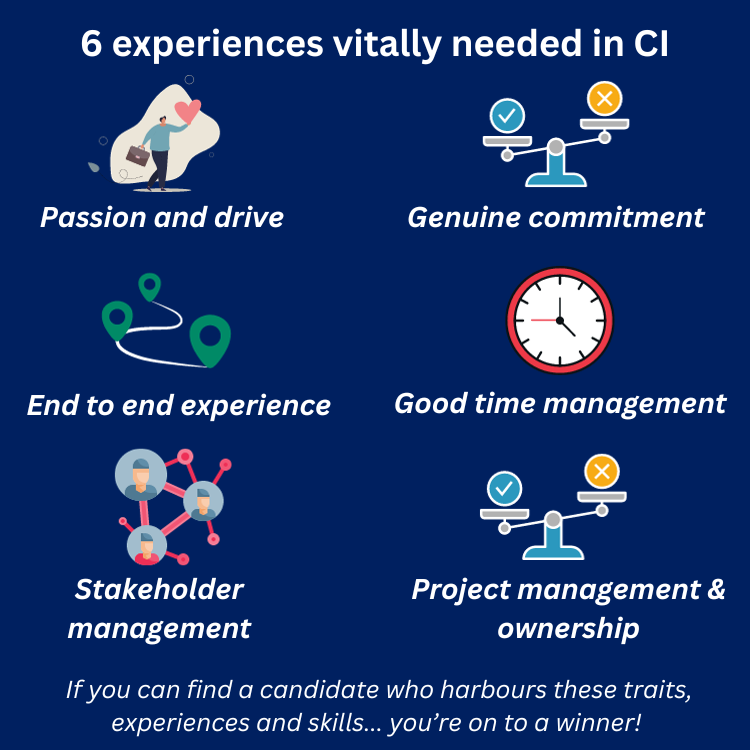
Q8: What is your favourite aspect of this line of work, and which is your least favourite?
This is a really effective question at understanding the scope of the interviewees experience. You will learn which projects and initiatives of the past have delivered experiences in this field that have really challenged the interviewee to a point of discomfort, potentially to an area they would not want to revisit. You will need to enquire as to what happened, why it went that way and what they learned from it. Equally, you get the opportunity to understand what gets the interviewee excited. This also gives you insight into potentially where the interviewee may place more emphasis when working for your organization, and which parts of their experience you will need to work on and develop. This is good insight to have at interview stage, before an interviewee becomes an employee.
Q9: When running an improvement project/initiative, how do you handle your time and plan for the work appropriately? Walk me through an example.
Time and resource management is crucial when it comes to continuous improvement. It is what keeps projects on track, from the kick off of the project, the deliverables throughout through to project closure. When you as a continuous improvement professional are on track, your project will be. With this question, explore using a real life example, how the interviewee would typically structure their approach. How do they plan for the project from the outset? What type of plan or approach do they use? When the project is rolling forward, how do they maintain this, ensuring deliverables are secure and deadlines are met? How do they engage with others to ensure they are doing the work expected of them? How do they set realistic timeframes? All of this insight is really important to gather at this early stage. Is this person going to come in and run a tight ship, allowing you as a Manager or Leader to take a step back and focus on other areas? Alternatively, are they going to require more support and help in this area, with being left alone leading to widespread disruption, delayed projects and frustrated stakeholders?
Q10: IF you added some interactivity to the interview, pull up a process map. Ask them to highlight the 6 challenges present and ask how they would divide these up into fixing over 3 stages – 2 challenges at a time.
This small exercise is great for a number of reasons. It firstly enables you to see how they respond physically to being asked to do such an activity. Do they remain calm and consistent or do they seem more agitated? Secondly, it enables you to see how quickly they can respond. Do they run through the process quickly, identifying all 6 challenges in good time? Thirdly, it tests their knowledge of the types of challenges the process is facing. Do they spot them all, spot only some or identify some ordinary activities as challenges? (This is a good way to really test if someone has the knack for this type of work). Fourthly, and most importantly, you will learn how the interviewee is planning to deliver continuous improvement. If you face a range of challenges in processes, it is often the case you cannot address all of these at once. You need to prioritize and place certain activities in a 2nd or 3rd phase, moving the process firmly into a continuous improvement cycle. Seeing which challenges they prioritize and where they place them in the cycle will be very telling (as will be their reasoning if they choose an approach different to yours).
Conclusion
To wrap this article up, I would stress the importance of knowing very clearly from the outset what type of person you need. What soft and hard skills must they have? What experiences and qualifications? Knowing your organizational needs and the current challenges you are facing (and will be over the coming years) will help frame what the perfect candidate will look like to you. Use this to frame the questioning and the approach you take in the interview, ticking off each requirement against the answers given and the body language witnessed.
A final question you could wrap up with could be this: What impact do you see yourself having on our organization? Given the challenges and the opportunities we have highlighted to you today in this interview, how do you see yourself helping us move towards our stated aims and goals? This is a really powerful way to close out your section of questioning and leave with a feeling of “this is the right candidate to help us achieve what we need to”.



